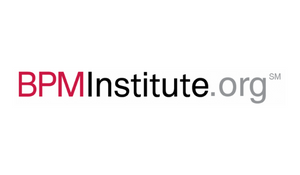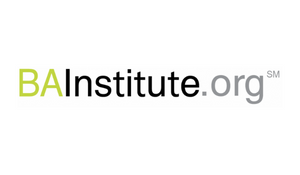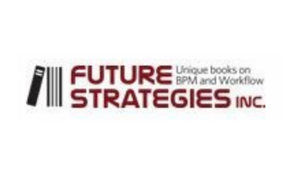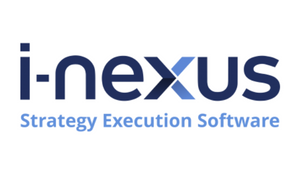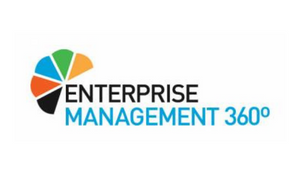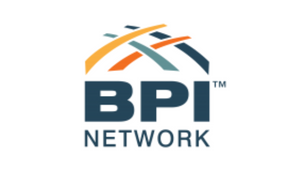

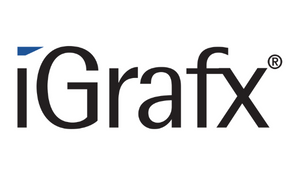


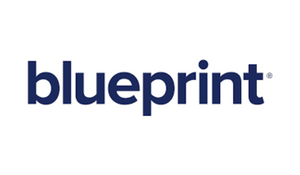
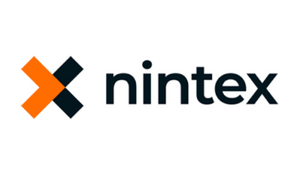
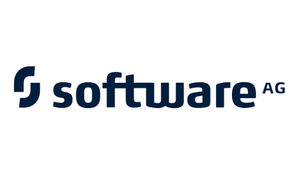

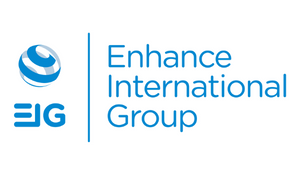
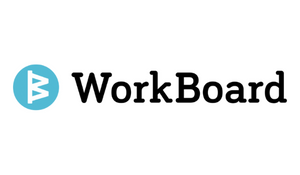
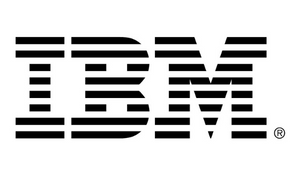


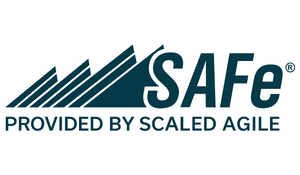
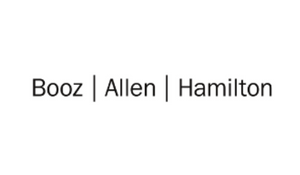
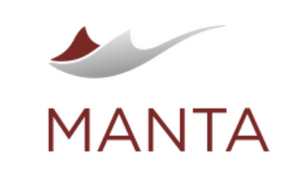
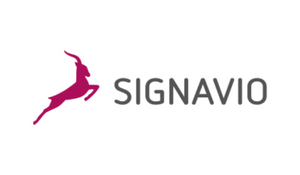


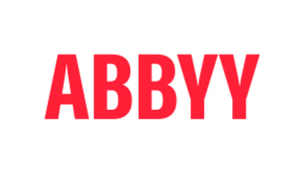

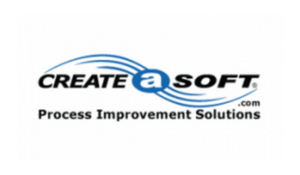



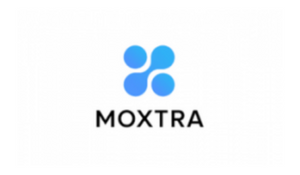
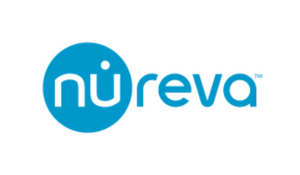
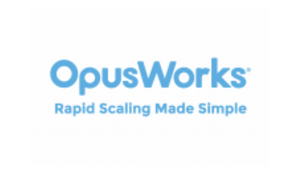
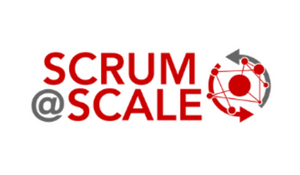
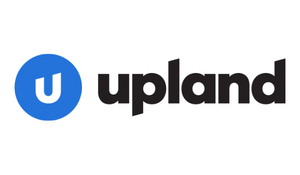
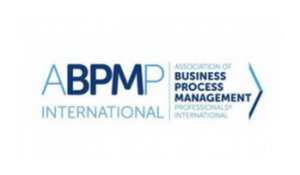
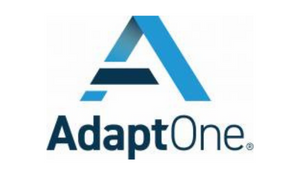
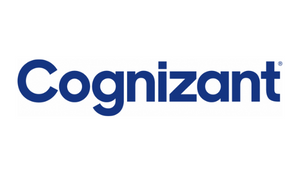
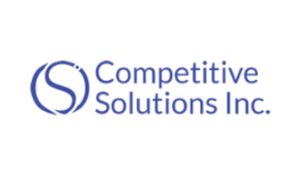
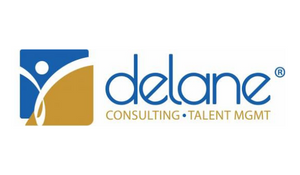

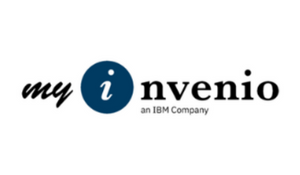
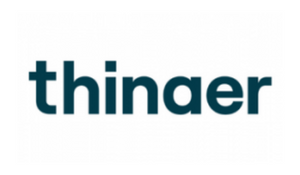
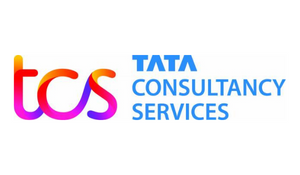
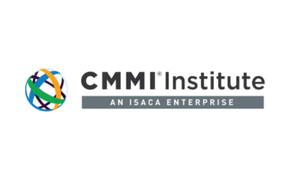
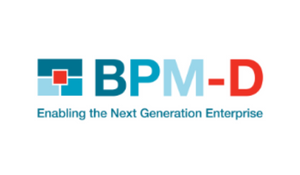

Courtesy of Exceed's Tim Wigham, below is a transcript of his speaking session on 'Mastering and Sustaining Excellence in Turbulent Times' to Build a Thriving Enterprise that took place at the Business Transformation & Operational Excellence Summit in Financial Services Live.
-2.png?width=300&name=BLOGS%20COMPANY%20LOGO%20(76)-2.png)

Session Information:
Mastering and Sustaining Excellence in Turbulent Times
“Controlling the controllable” is the best way to influence our desired outcome. Our personal habits and our group behavior represent our culture which itself drives performance and productivity. Surely a continued interest in building a culture of excellence is important for all of us.
Session Transcript:
Talking about Tim Wigham, Tim is the head of performance at Accede in Aberdeen. He leads a team of performance coaches, who implement and guide improvement solutions on upstream, upstream, drilling, production, and decommissioning work scopes in the energy sector.
Tim was a Captain in the UK Royal Marines before completing his MBA in Cape Town, South Africa, where he's originally from.
He then is specializing performance coaching for professional teams and became a Director at Exceed in Scotland in 2012.
Tim is also a ted-x speaker, published author, and competitive crossfader. Tim, it's always a pleasure and a joy to have you with us sharing your vast experience and expertise in the area of transformation. Thank you so much for sharing that with our global audience today.
Thanks so much, Josie.
I will share my screen, let me know if there are any issues, hopefully you can see it, and I will proceed so.
In the early hours of Christmas Eve, 2007, a Troop of Royal Marines commandoes stepped out on a routine foot patrol in the Helmand province of Afghanistan.
The silent dawn was shattered by a massive blast when one young marine stepped on and triggered an improvised explosive device or IED.
Thanks to the swift action of the men around him and the intervention of the medical emergency response team, he was airlifted via helicopter to an emergency field hospital.
In a desperate attempt, to try and save his life.
An innovative and dangerous procedure carried out, on board a Chinook helicopter. On route to the hospital, did save his life.
He woke up three days later in the UK, in Selly Oak Hospital Birmingham, both legs amputated above the knee, and his right arm amputated above the elbow.
He was the UK's first triple amputee to survive the Afghanistan conflict.
During his recovery, the doctors told him that he'd never walk again.
And that he should prepare himself for the rest of his life in a wheelchair.
The Marines name is Mark on rod.
Would have been understandable for Mach two bursley withdrawal in a state of anger and depression, and to resign himself to live life on the sidelines.
It would have been easy for him to cash in his disability pension and whittle away the days forever, regretting the decision to join the Marines and to deploy to Afghanistan.
But this was not mock style.
To the contrary actually, he use his setback as a springboard for growth and re-invention today.
Mark ...
is an internationally acclaimed motivational speaker, Keith performance coach, and the author of the award winning, Autobiography Man Down.
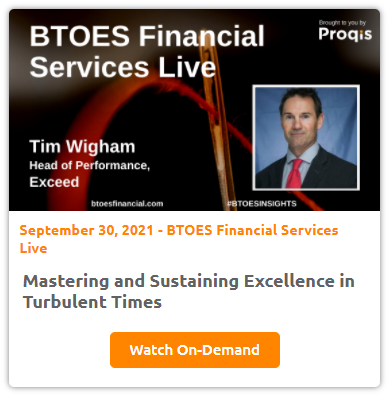 He's a source of daily inspiration for the thousands of people who follow him on social media.
He's a source of daily inspiration for the thousands of people who follow him on social media.
It has three children, a beautiful wife.
And an insatiable **** for life is a relentless charitable fundraiser and a Daredevil, whose perform stunts that many able-bodied athletes would find daunting.
He's not used a wheelchair since 2009.
And he jokes about the fact that children call him Iron Man.
Because of his high-tech prosthetic legs?
Now, as well as a peak performance Coach, she's a mentor, and a role model, to other amputees, and an Ambassador for the Royal Marines Association.
His sense of humor is only equaled by his sense of Wonder love for learning and love for life.
Mark O'Mara has turned his personal tragedy into an ongoing story of personal success and he's now committed to helping others who may have suffered setbacks or feel they are not yet achieving their maximum potential to take charge of their lives, unleash their personal power, and live a life with no limits.
Now, what I found most inspiring is that during and a recent interview for yet another charity endeavor, where he was going to perform an open water swim, which many of us have probably not tried, and he only has one arm.
Mark was asked directly whether he would change anything about his life if he had the power to go back in time.
And he was very candid and said that there were a few dark times in the months following the near fatality, when he, of course, had wished it had not happened.
But now, on reflection, he says he would not change anything. In fact, he's grateful for the blast. That changed his life because he discovered the power of his mind over any matter.
He believes his ordeal, transformed him for the better and gave his life meaning and purpose.
Now, I'm going to park that story there, and take you on, too.
The next story, so in 2003, British cycling was decidedly average having only one won medal in 100 years at the Olympics in cycling, and having never come close to the podium in the Tour de France.
The reputation, for average was so bad that, apparently, there were European cyclists who refused offers to endorse British bikes because they didn't want to be associated with the reputation of British cycling.
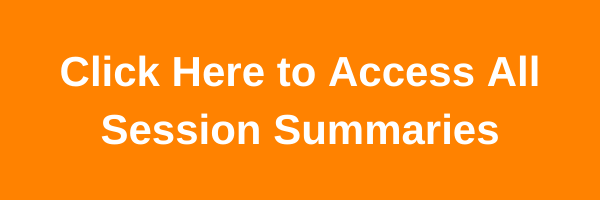 David Brailsford was hired as the Performance Director in 2003, to help turn this all around.
David Brailsford was hired as the Performance Director in 2003, to help turn this all around.
Sir David Brailsford, as he has now, Revolution, revolutionized the sport using the theory of the aggregation of marginal gains.
Brailsford believed that, if you make a 1% improvement in a host of tiny areas, the cumulative benefits would be extraordinary.
The theory of marginal gains or micro excellence, has been credited for voting the British cycling team from a mediocre performer To more than 20 gold medals over three Olympics and seven, Tour de France wins in eight years, between 2010 and 2020.
The examples of micro excellence used by the British cycling team are legendary in the sports world.
Brailsford had the floors of the team truck painted pristine White to spot dust on the floor, because even the slightest amount of dust could potentially impair bike maintenance.
This act alone wasn't enough to win a race or make any more than a borderline gain, but when added to a host of other small improvements, it made all the difference.
Every little detail counts.
The Tour de France is a 21 day race of grueling distances and climbs that sap, every ounce of energy and strength from its riders.
During the race, the cyclists slept in 21 different hotels, each with different beds and pillows.
Now, when you're riding six hours a day for three weeks straight, the slightest deprivation of rest can make a significant difference in performance.
Brailsford had the team bus carry custom designed mattresses and pillows for each rider, which was set up in each athletes room, so that the elements of rest and recovery were controlled and not left to chance.
Hand-washing was also identified as again to minimize colds and flu.
Again, this is a detail that in isolation, is not going to win you the Tour de France, but in combination with all the other minor changes, the results are staggering.
Perhaps the most powerful benefit is that it creates a contagious enthusiasm.
... had said, In a 2015 interview with Harvard Business Review, everyone starts looking for ways to improve. There's something inherently rewarding about identifying marginal gains. The camaraderie becomes infectious.
As this thinking became a methodology and a philosophy shared by all members of Ralph, its team, they kept searching for any and every area where they could make tiny improvements. Their goal was a marginal or 1% gain, in every aspect of their training and environment.
All members need to feel psychological safety, safe enough to challenge how anything and everything is done.
If you see it, you own it becomes the guiding mantra individually.
Each incremental change may have seemed unnecessary or random, but collectively, they helped create a powerhouse with a level of success that became the envy of the cycling world.
It's a lot easier to focus on management, manageable improvements, where you see specific results than to chase big ideas that may lead nowhere.
But the dedicated focus on improvement in the smallest of tasks that no one wants to spend time on, is actually what separates the elite few from others who are often more gifted and talented, but never realize their potential.
And again, I'm going to talk that story there and go to one more story.
I'll never forget the 1995 Rugby World Cup.
I was born and brought up in Southern Africa in the 19 seventies and eighties. So I was aware of the racial divide, and I was aware of the rugby divide.
The mood in South Africa at that time was one of anxiety and insecurity.
When the great Nelson Mandela was voted into power in 19 94, he confronted the racial divide in an unexpected way.
He forgave, and he reconciled.
It also played a hand in ensuring that the Rugby World Cup would be hosted in South Africa in 19 95.
Now, the Springboks were not really given a realistic chance of winning the tournament.
In fact, they were seated ninth out of 16 teams going in part of the bottom half.
They scrap their way to the final. But no one gave them a chance against the mighty old blacks who had Jonah Lomu and their team.
The final itself was incredible, but what Mandela did was make the improbable possible.
He created the conditions for a chance in a million.
In fact, a chance for 43 million.
You see Mandella understood the magic of mood set.
He understood the ingredients of inspiration and the idea of invictus, which means Unconquerable soul.
Mandela was by then an icon, a global leader.
Can you imagine how it must have felt for the squad when he appeared in the Springbok changing room unannounced and he was wearing Springbok Jersey, and it had the same number as that of the inspirational Captain Francois Peano.
Apparently, the team was so pumped up. They were ready to run through walls for him.
Before the national Anthem, Mandella appeared on the field and the Stadium erupted.
After the game, when Mandela presented the trophy, the entire crowd started chanting Nelson, Nelson, Nelson, Nelsen, Nelson, Nelson.
The All Blacks Captain Shorn Fitzpatrick is quoted as admitting that it felt like the old blacks were up against an entire nation, not just a team.
He said The power that Nelson Mandela brought into that stadium on June the 25th was incredible.
I'd never experienced anything like it.
Mandela saw that event as an opportunity to unite a country.
Nelson Mandela became known as a symbol for reconciliation and servant leadership.
Its greatest strength was his vulnerability.
He knew that to heal and transform a divided nation, he needed help, so he asked for help.
His mood was contagious, It caught on across the world and he was and he will always be held in the highest esteem for his ability to bring happiness wherever he went.
Now, a picture paints a thousand words as they say.
I'm hoping that the images I've shown along with the stories shared, will help, as I reference, a simple model I have developed based on my experience as a performance guide.
So, the three M model to mastery shows the balance needed between mindset method and something that I call mood set in order for excellence to be sustained.
Mindset is belief and purpose.
It includes attitude and perspective.
Method is process and program.
It's the approach adopted for emission and a goal.
Moots, it, is about the heart and soul, The energy, the atmosphere.
In my experience, leadership, teamwork, and discipline should provide the glue between the three M's to accelerate that mastery.
This is about unlocking our best selves.
Or best we can be, as a team, no matter what industry we're in.
So key takeaways at this stage, would be mind over matter, marginal gains, and mood is contagious.
I enjoy reading books about high performance teams and team excellence, of which there are, of course, many out there.
Legacy by Jim Ker about the All Blacks is a great example.
Now, another book that I read last year I can recommend is a book called The Culture Code by Daniel Coyle.
You also spent years researching the secrets of highly successful groups.
He was interested in how people show their care, how excellent groups' unlock true Synergy and what is most important in achieving consistent success.
Daniel Coyle visited and researched eight of the most successful groups in the world over a four year period, including the likes of Pixar and the old blacks themselves so across different industries. And this is what he found.
The top three criteria for success were these.
one, Establish purpose, clearly communicate, and enroll others in shared goals to build psychological safety, engender trust, and belonging.
One third was share vulnerability, be transparent, and show Fallibility.
If these three elements are core to high performing teams, purpose, psychological, safety, and vulnerability, I want you to reflect on my own life's journey, to identify when I may have been part of an excellent team or a high performing team, and how these elements may have manifested during those experiences.
So, the first one was purpose and I reflected back to my time in the Marines and an operation I was on in West Africa, West Africa called Palliser Operation Palliser.
As Day broke one morning in June 2000, I could see the sun breaching the horizon, and I could hear the gendering rotor blades rudely interrupting the silent night sky.
I could feel warm air on my face and butterflies in my stomach.
The taste of adrenalin was in my mouth.
As I sat on the Sea King helicopter, flying from the Commander Carrier HMS Ocean towards the beachfront of Freetown Sierra Leone, I reflected on the mood of the marines. I was privileged to lead.
While sailing south from the Mediterranean, where we had been on exercise before the mission was announced, we had seen the coverage on Sky news of the Revolutionary United Front, all US, including Bloodthirsty teen militants on a drug fueled rampage, hacking off the limbs of innocent civilians, and leaving a trail of murder and destruction in their wake.
They were marching on freetown to overthrow the government, and to deliberately destabilize the small West African Nation, in order to control the blood diamond trade.
We had also seen the tragic amputee camps, which were filling up with the victims of War.
Our mission was to enter this conflict zone and protect Freetown while allowing the United Nations to regroup in the region.
Now on the ground in Freetown, the mood of fear was all around.
There were visible signs of recent clashes and dead bodies lay on the beach.
The stench of pollution and poverty was pervasive and I sweated in the equatorial heat as I made my way to the UK Spearhead HQ, at ... sealed, to link up with the commander on the ground.
Colonel Gibson.
The CEO of two para, Parachute Regiment.
greeted me and said, Glad you guys are here, Tim, real important points were struggling to distinguish friend from foe.
The average age of the rebel soldiers is 12 years old and many of the, UN battalions are being held by the ... as captive.
Now, my mortar troop of 60 Marines flew onshore over the next few days and we adjusted a number of targets to ensure indirect fire protection.
When the rebels attacked During that six week campaign in a war torn country, there were many threats and risks outside of our control.
But what we could rely on was our training and our trust trust in each other, trust in the system and trust in the motivation of the Marines on the ground. In other words, we focused on what we could control to lead a successful campaign.
Now, when I reflect on that situation, I realized how United we were behind the clear purpose of protecting innocent victims of war, and restoring stability in order to save human lives.
Prior to that operation, I recall there had been some distraction and disillusionment on the deployment.
Where we've been exercising with other troops in the Mediterranean and there have been some challenges between different companies between the unit, but News of War and Unfolding Tragedy had rarely focused us. We had clear and compelling purpose, which restored motivation and collaboration behind a just cause.
So psychological safety.
In 2008, I was a performance coach on a drill ship called the Global Santa Fe Explorer.
It was two hours by helicopter off the coast of Angola.
Our mission was to drill seven ultra deep water wells in two years, and despite some early setbacks, the team had engendered a sense of trust and belonging.
Halfway through the project, there was a crash in the oil price and a change of onshore leadership in the wells team we were supporting. And unfortunately, the negative impact that change had on the prevailing mood of the offshore team was palpable.
Daily calls felt like the proverbial witchhunt, heads dropped, and an announcement that this new superintendent, along with the country manager would be visiting the rig caused alarm and angst amongst the crew.
The depressed Mood on deck had a negative impact on safety and performance.
I remember reflecting on the fact that the bullying language and behavior from the onshore leaders was causing more mistakes because of fear.
A team on eggshells.
When the chopper landed on deck with our visitors, the accomodation area of the rig was deserted.
You would have been forgiven for wondering if the crew had somehow disappeared.
No one wanted to see or speak to the grim Reaper.
So the Well Site leader was left on his own, tost, his bosses.
Many on the rig were miserable for the duration of the visit.
I could feel the nervousness among the crew during pre shift meetings And even in the galley I could see the anxiety on the faces of service personnel but something interesting happened, when this new superintendent tried to force sweeping changes to the way things were done, the off shore well site leader finally pushed back.
It was, it was like watching a reluctant hero standing up to a playground bully.
Our off shore team rallied behind our leader who had the courage to defend a proven and performing group.
And the bully saw this and backed away.
The offshore mood lifted with his chop off the rig, and in fact, within months, he had been moved on elsewhere.
Morale and mood rebounded.
It was like a dark cloud of gloom was replaced by a sunny day.
I literally felt that team mood lift from hopeless to hopeful. Thanks to some positive and inspirational off shore leadership.
.png?width=742&name=Screenshot%20(4).png) Psychological safety was restored.
Psychological safety was restored.
The campaign went from strength to strength after that, with a proven method for teamwork and team learning.
Enough time and cost was safe. two extra wells to be drilled within the original budget.
Onto vulnerability and family. At the start of Lockdown, I committed to doing a Crossfit Workout every day.
And often my kids would be involved or nearby.
I look forward to this, but after only a week, I noticed that as I was going into the man cave at home, my three kids were coming out.
It's all yours, they would say.
Thank you for giving me the space I replied.
But I was missing our shared time together.
So the following week, I decided that I would surprise them By starting an hour earlier.
I thought that they might be keen to join me.
As I walked in, I could see the look of disappointment on their faces as they looked up from their iPads.
Do you mind if I join you?
No, thanks. We'll leave the man cave.
Now I knew that something was wrong so I asked my daughter, ..., Where are you going? Don't you like working out with your old man?
She looked me straight in the eye and said, We stay away from you when you want to work out, Daddy, because we don't want to catch your grumpy mood.
Now, I thought I was just being focused, but perception is reality. As we all know.
I realized, then, that my kids sometimes avoid me, because of the way my mood affects the atmosphere at home.
Having learned the hard way many times before, I realized it was time to ask for help.
Now my wife confirmed that barking orders might work for the dog, but was not appreciated by the human contingents in the house.
The atmosphere I created home affects my kids' willingness to be around me.
At times, the kids are walking on eggshells around us parents to try and avoid an upset.
Now, on the flip side, I noticed that my wife loves listening to Dolly Parton Playlists.
So when things were a little tense and she was clearly at the end of her tether one evening, I quietly asked Amazon Alexa to play Dolly Parton.
Well, my wife's mood shifted from beat up to upbeat in a heartbeat.
It was impressive to watch, OK, the bottle of wine might've helped, but it was still impressive.
I then applied this strategy during car journeys with the kids, Let them choose the playlists to get them in a better mood.
It worked.
Creating a climate in the car that improves the mood of the majority, helps the journey, and gets us happier to the destination.
In fact, Clay in general, it's great for family mood set, Playing cards, or monopoly or visiting the playground.
All of these activities make my personal playbook for mastering mood set at home.
I realized that being vulnerable and admitting my shortcomings can break down barriers with my wife and kids.
I now do that a lot more often at home.
As one of the leaders in the family, it's all about my language and my behavior, Less me, and more we, more listening, less telling, and being vulnerable about when I need help.
Amazing how powerful those three words can be.
I need help.
So, purpose, psychological safety, and vulnerability are common across the best organizations on the planet.
And if we think hard, we realize this has applied and can apply where we work and at home, to build something great, no matter what industry we're in, we can take something from that.
Now, it struck me in preparation for this talk that invictus is a relevant theme for my message of inspiration.
It's perhaps a golden thread that runs through this message.
Mark ... has been a champion at the Invictus Games, overseen by Prince Harry.
Mandela and his masterful leadership at the 995 Rugby World Cup inspired the movie Infect Invictus.
Invictus means unconquerable soul and somehow feels appropriate for us all as we emerge from this global pandemic.
I'm also sure that the marginal gains Wehrmacht home, Rod and Nelson Mandela seemed extremely marginal at times.
That slight edge of improvement versus decline.
I mean Nelson Mandela was in prison for 27 years for standing up against apartheid and adversity for championing human rights.
26:54
It is said that invictus was Mandela's favorite poem.
It was good enough for him.
I felt it might get us in the mood for the challenges ahead.
Out of the night that covers me black as the pitch from pole to pole, I thank whatever gods may be for my unconquerable soul.
In the felt clutch of circumstance, I have not winced naxal cried Aloud.
Under the Bludgeonings of Chance, my head is ******, but unbowed beyond this place of wrath and tears looms but the horror of the shade.
And yet the menace of the year's finds and shall find me unafraid.
It matters not how straight to gate, how charged with punishments, the scroll.
I am the master of my fate, I am the captain of my soul, and that was written over a century ago by William Ernest Hanley.
 So, with a mark on Rodd mindset, Mccomb Rod Marine mindset, a marginal gains methodology, and a mandella mood set.
So, with a mark on Rodd mindset, Mccomb Rod Marine mindset, a marginal gains methodology, and a mandella mood set.
I know we can all master our fate and create a culture of excellence at home and at work.
So I wish everyone listening all the best for the journey ahead.
Terrific, Tim.
Well done as usual, and inspirational and practical. Let's talk about some of the commentary that that came up during your talk, Tim. Let me bring my camera back in here.
Specifically, people start jumping onto the vulnerability piece that it's hard to be vulnerable.
Let alone be vulnerable in an organization where everything from educational systems and performance systems and organizations is about, to a large extent, creating this environment, where you have this facade of control and perfection, and really lack of vulnerability.
How do organizations start shifting that so that you can, you know, harvest the benefits of a more vulnerable approach?
It's a great question, Josie, and I've thought about that before I've been asked that before, and I think the first step, which most, most leaders would be willing to accept, undertake all those, those three words You know, I need help, because let's face it, as a leader: You do need help, I need help.
We all need help, and just by using those three magic words, it's amazing what can happen.
I've read about it from some of the most successful business leaders, some of the most successful sports coaches, by saying, Those three words, I need help, We can start to be vulnerable without feeling that we're bearing our soul.
Now over time, of course we can mature through that and be more specific about where we are needing help, which, let's be honest, Josie.
You know on the back of this global, pandemic and locked down, might include our mental health and wellness where we're seeing increased concerns about how this lockdown has affected, particularly the vulnerable those that have been older, living on their own isolated.
And so, by saying, either I need help, or by asking how I can help you, we hopefully create a, such a society where vulnerability is the new strength, it's seen as, as, as a strength rather than a weakness. And I'm definitely experiencing that transformation with clients and in my own workplace, which I'm really pleased to convey to you.
And hopefully, you and others are as well.
As I said, so my answer would be, just start by asking your direct reports, how, you know, I need, I was saying, I need help, and then asking them where you can help them.
That's very, that's powerful, Tim, powerful insights. Tell us a little bit about your own personal journey, if you will. I mean, I don't see assume that as a captain in the UK, Royal Marines, the being vulnerable was top of mind at that time.
So, sometime are along the journey, this resonated with you if you if you if there is an event or if there is just a combination or compilation of events over time, what what?
What triggers you to start considering this more intentionally more thoughtfully?
That's a brilliant question, because, if I am absolutely honest, I would say that in the military, I wore a mask, and I will armor, you know, because you're absolutely right. Just a, the, the perception is rightly or wrongly, that we need to be tough, we shouldn't show our weakness, we shouldn't show a vulnerability. So in answer to your question, if I'm absolutely candid, I would say it was well after I left the Marines, which I was in for eight years. I went and did my MBA.
And then I realized that I wanted to get into management, consulting, and, and coaching, and leadership coaching.
Because that's where I saw a gap in many of the industry leaders that I was starting to come across.
And so I I signed up for a series of coaching courses, Coaching to Excellence, associate coaching course, and then a professional coaching course through the international coaching federation.
And that was absolutely excellent during those coaching courses I rarely had to strip myself naked, so to speak strip my soul bare.
I really had to take a good, hard look at myself, Good, hard look in the mirror, except where I'd been lying to myself, except where, Aye, was struggling, except that I needed help, except that, that, in, it was only by getting to know myself, that I would be able to help others.
So it's a good question, because I'd argue that in the Marines, there was no event that really caused me to be genuinely vulnerable. There were definitely times where I said I needed help, but I had a rank slide on my shoulder. So I could instruct the Marine to do something. So I could say, I need help, but I need you to do this, and he basically couldn't argue back. He needed to get it done. What? I discovered, having left the military.
Becoming a performance coach, which is often an optional role in the environments where I work.
There is no rank slide. There's no rank on your shoulder. You have to earn respect, and you have to influence leaders. And the only way they're going to do something that you ask them to do, is if they feel that what you're saying makes sense, and that you're inspiring them to do it.
So, yeah, it was probably within the 10 years, after leaving the Marines between 4010, that I rarely started to understand what vulnerability is all about.
This is very, very impactful and the timm it sounds to me that the concept of courage has shifted a bit and where, you know, there was maybe the old-school concept of courage is leading from the front and the there is a new concept of courage. That's leaving, leave the leading from behind.
I'm just curious about, I have found on my own leadership development experiences that a couple of the key ingredients of enduring greatness in organizations and leadership combine discipline and courage.
There was a lack of courage overall in organizations. I'm curious about your view of courage. Every time I talk to organizations at all levels.
When people are really vulnerable just certain extent, they talk about the lack of courage around the organization.
Curious about your view of courage As you have such a diverse experience in the military and civil organizations. Has courage evolved a bit in the last couple of decades?
Yeah, I mean, first of all, I'd say you do a fantastic job Joseph, of kind of leading from behind, so to speak. In other words, you, you have the courage to step up and lead these webinars and you've done, so, many of them, I've watched many of them. And, you do a fast, fantastic job of bringing the courage to inspire others and you are facilitating, so you're often in the background you you kind of make sure that we feel comfortable and then you have the courage to ask the questions that need to be asked. So I would use you as an example.
 I would also say that you know, we don't need to look much further than Nelson Mandela as a true example of leadership with Courage, but servant Leadership with courage.
I would also say that you know, we don't need to look much further than Nelson Mandela as a true example of leadership with Courage, but servant Leadership with courage.
So, you can still be courteous, respectful, and kind.
And, that, and, and that, you know, that can mean that you can, you can give the honest feedback which might be quite hard hitting.
And, Matt might actually be so hard hitting that the recipient doesn't want to hear it, but you can still deliver it in a kind and courteous way.
But have the courage not to avoid saying it just because you're worried about hurting their feelings or worried about how others might think of you.
And so for me, Courage is about calling it the way it is outing the truth. You know, the truth need, Transparency, truth, and trust. I see as the three T's for, for a strong organization. So, leaders need to be transparent. They need to have the courage to be transparent.
So, even when things aren't going well, people know when you're lying or when you're spinning the truth, so you have to tell the truth, but that then, that transparency then builds trust.
So, being transparent with the truth, I believe, builds trust in the organization and that starts to build a high performing culture. You've got the courage to do that. Then you're a servant leader, but you're also a high performance leader.
Yeah, that's that's very insightful, Tim.
We have a I think you and I have a many who are attending this conference. Either live or they're watching the, this broadcast a little bit later, which, you know, we have well over 1100 registered participants and a lot of them are going to consume this content via videos later on.
And, And I know based on the questions that I received during the live events, some of the things that they're interested in. And then they have this common passion for excellence. And maybe I'll call it the pursuit of greatness. And the, and the and it requires purpose, requires passion, discipline, resilience.
And it is interesting because you and I have been experiencing, but also studying excellence for a few decades now. And that, but we come at it from very different angles. You are captain in the UK. Royal Marines, IM, some kid from the streets of Rio de Janeiro Brazil and that we have this very different paths.
But inevitably what we find is that I feel that when you spend enough time, you know, evaluating these things intentionally. You come to certain conclusions. They're very equivalent, but we use different words for them because of our personal and professional experiences.
So for example, I talk a lot about collaborative leadership, which is a requirement to surround yourself with people with different perspectives and and at the end they and they have with the ability to voice their disagreement, without fear of retaliation and and there's courage and there, there's vulnerability in that on, on both ends.
And I'm curious on that.
You know setup fear of retaliation fear in general, it's pretty high in organizations and how do you deal with that fear? It's it all ends, it's the senior leadership. I mean, there was a fear and senior leaders to become vulnerable.
As much as there is a fear at lower levels to be retaliated against for doing something wrong for making a mistake, how do you How do you bring this all together? You start lowering the fear and anxiety level. You talk a little bit about creating safe spaces psychological safety. Curious if you can discuss a little bit more about how do you do that?
Yeah, I mean, exactly as you've just finished with that question, just say it is about psychological safety. This was a big finding, and Daniel coils research, which don't forget, was eight organizations over four years and these are proven high performing organizations.
So, you know, that, that feedback is, as clear as it ever needs to be, that psychological safety is, is essential. You know, your question is: How do we create that? And that's a great question, and I won't present profit.
I won't pretend that we have a silver bullet for that.
What I would say is that one of the initiatives that myself and the coaching team that we have here at Exceed implement with clients that we're working with is something called Work Smart.
It's a work smart program and it's not dissimilar to Lean Kaizen, all of these initiatives, which we've seen for decades. Where you, but, you have to be genuine about it. So, it's appealing to the workforce to submit ideas for how things could be done better. And I liked your point about diverse organizations, you know, their strength and diversity. So, we're interested in everyone's ideas, even if it's outside the field of expertise.
They might take that objective perspective and say, But, what about this?
And that, sometimes perceived as a stupid question, can sometimes be the best question ever asked. Because it results in a, in an innovative change, as you would know, better than most josey.
So, width width work smart that we implement.
The key for it is that you give feedback to every single individual who submits an idea.
And not only that, but they see that.
coaches, in our case.
Make sure that the key leaders onshore and offshore if it's an oil and gas project or in any industrial environment, that on a weekly basis, all of those ideas are genuinely looked at and considered by the leadership team. And even if it can't be implemented, there's a reason why.
And that is fed back to the contributor that then starts to create a virtuous loop, offsite, psychological safety, because people feel that their ideas are genuinely welcome. And if they challenge something, they're not gonna get shut down. They're actually going to be thanked.
Well their contribution. So that would be one part of an answer to your question, Josie. I hope it helps.
Thus, it does very much.
one final thing that I want to bring up here that Tim, though from from the audience and the areas, the impact of exponential technologies in the way that we work in the way that we live today.
Um, how does that, how does that affect the human element? And the, and the human performance in this world, now that that's so dominated by digital technologies. So how, how, how is that shifting?
Yeah, that's a great question. And what comes to mind for me is that it's a double edged sword.
Digital enablers are absolutely fantastic.
And we're seeing that at an incredible pace, And I would never dispute that equally.
However, digital can be a major distraction. We've seen that with social media.
.png?width=742&name=Screenshot%20(4).png) And distraction is a key human factor, which can lead to dangerous incidents in particularly the heavy industries.
And distraction is a key human factor, which can lead to dangerous incidents in particularly the heavy industries.
So digital is both hugely enabling and really exciting, and equally, a massive distraction, which can take people's eye off the ball.
It can lead to really bad accidents, as we've seen ad nauseum, ad infinitum.
With on YouTube, you look at some of the people distraction by them, distracted by their mobile phones, walking across the road, then get basically hit by a car. I mean, sadly, that is very prevalent.
So, so I think no human factors, digital factors, in combination contributing to improved performance in any organization, we need to consider the two equally. And we need to balance the, the benefits of both. And of course, in different industries, there are different dynamics at play, so it's, it's, it's just, it's another challenge for leaders, isn't it?
It's sherry as I'm sure you appreciate this.
one of the one of them, the leaders that I work with in the US.
Air Force, he likes to talk about the fact that technology is great, but also technology can make stupid happen at the speed of light. That's right. Because, not only the distraction that you talked about, but also, you know, the love for technology that's not really being very helpful for your mission and your purpose and you'll capture this so, well, you know, great enduring organizations and the work that coil did as well. You have psychological safety.
You have the vulnerability, but it all started with a very clear purpose. And that you can align in the aligned on it. And technology is another one of those components. Temp. It's always a pleasure. Again, congratulations on becoming a ted speaker. I've I've watched your video, it's fantastic. I encourage everyone who's watching today to go watch that Tim's video on ... Stock And the support him there, it's a fantastic insights that he shares there as well and as usual, very grateful for your time and generosity of sharing your expertise with our global audience today.
Always great to spend time with you, Joseph: Thanks for the opportunity. And all the best.
Thank you.
Ladies and gentlemen, Tim Wagon. Head of Performance at Exceed, and that all is a gift to have a team with us sharing his wisdom and expertise. We are going to be taking a break now. And at the top of the hour, we're going to come of another great, and during leader of excellence and innovation. And I'm talking about my dear friend Ray as a tar, who is going to be discussing culture, business and digital transformations with us and how we enable growth while protecting stakeholders. You do not want to miss this session, starts at the top of the hour. Take a break back now, and I'll see you soon.

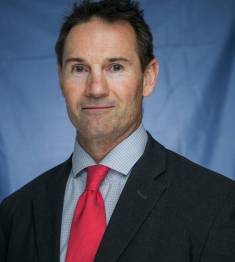 Tim Wigham,
Tim Wigham,
Head of Performance,
Exceed.
Tim Wigham grew up in Southern Africa. He served in the British Commandos for eight years between 1992 and 2000 and departed as a Royal Marines Captain after serving on operations in Northern Ireland, West Africa, and the Caucasus.
In 2001, Tim completed his full-time MBA in Cape Town. His electives focused on strategy, leadership, and entrepreneurship.
Tim then started a business in South Africa which specialised in SME executive leadership breakaways across a range of industries, to help leaders build strong team cohesion, clear strategy, mission, vision, and authentic company values.
In the sports industry, Tim worked on mental toughness with several of the Springbok rugby players who went on to be World Cup winners in 2007.
Tim is currently the head of performance at Exceed in Aberdeen, Scotland. He has worked as a performance improvement expert in the energy sector since 2007. Exceed has provided performance solutions to over 30 offshore teams, including drilling and decommissioning projects for several Operators in the North Sea. These teams have all achieved exceptional results through their commitment to a proven process which includes a rig-based performance coach.
Tim is married and has three young children. He has lived in Scotland since 2012. His main interests include faith, family, fitness, reading, writing, and learning. He also enjoys blogging about inspiration.

View our schedule of industry leading free to attend virtual conferences. Each a premier gathering of industry thought leaders and experts sharing key solutions to current challenges.
View Schedule of EventsWelcome to BTOES Insights, the content portal for Business Transformation & Operational Excellence opinions, reports & news.
-------------------------------------------------------
Search for anything
Insights from the most progressive thought leaders delivered to your inbox.
Insights from the world's foremost thought leaders delivered to your inbox.
Being a hero is all about creating value for others. Please invite up to 5 people in your network to attend this premier virtual conference, and they will receive an invitation to attend.
If it’s easier for you, please enter your email address below, and click the button, and we will send you the invitation email that you can forward to relevant people in your network.
View our schedule of industry leading free to attend virtual conferences. Each a premier gathering of industry thought leaders and experts sharing key solutions to current challenges.
View Schedule of EventsWatch On-Demand Recording - Access all sessions from progressive thought leaders free of charge from our industry leading virtual conferences.
Watch On-Demand Recordings For FreeDelivered by the industry's most progressive thought leaders from the world's top brands. Start learning today!
View All Courses NowThe premier Business Transformation & Operational Excellence Conference. Watch sessions on-demand for free. Use code: BFH1120
Watch On-DemandInsights from the most progressive thought leaders delivered to your inbox.
Insights from the world's foremost thought leaders delivered to your inbox.
Being a hero is all about creating value for others. Please invite up to 5 people in your network to also access our newsletter. They will receive an invitation and an option to subscribe.
If it’s easier for you, please enter your email address below, and click the button, and we will send you the invitation email that you can forward to relevant people in your network.
Courtesy of Nintex Pty's Paul Hsu, below is a transcript of his speaking session on 'Improve employee productivity during and post-COVID by ...
Read this article about HP, Best Achievement in Operational Excellence to deliver Digital Transformation, selected by the independent judging panel, ...
Read this article about BMO Financial Group, one of our finalists, in the category Best Achievement in Operational Excellence to deliver Digital ...
Read this article about Cisco, one of our finalists, in the category Best Achievement of Operational Excellence in Internet, Education, Media & ...


